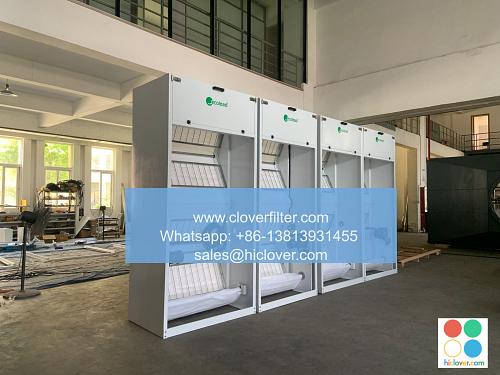Air Filter Design for HVAC System Maintenance for Energy Efficiency

The design of air filters plays a crucial role in maintaining the energy efficiency and indoor air quality of Heating, Ventilation, and Air Conditioning (HVAC) systems. A well-designed air filter can help reduce energy consumption, minimize maintenance costs, and improve the overall performance of the HVAC system. In this article, we will explore the importance of air filter design for HVAC system maintenance, highlighting various application areas and key considerations for optimizing energy efficiency and indoor air quality.
Understanding Air Filter Design and Its Impact on HVAC System Performance
Air filters are a critical component of HVAC systems, responsible for removing airborne contaminants, such as dust, pollen, and other particles, from the air. The design of air filters can significantly impact the performance of the HVAC system, affecting not only the indoor air quality but also the energy efficiency and maintenance costs. A poorly designed air filter can lead to reduced airflow, increased energy consumption, and decreased system performance, resulting in higher maintenance costs and a shorter system lifespan.
Key Considerations for Air Filter Design: MERV Ratings, Filter Media, and Airflow Resistance
When designing air filters for HVAC system maintenance, several key considerations must be taken into account, including:
- MERV Ratings: The Minimum Efficiency Reporting Value (MERV) rating measures the filter’s ability to capture airborne particles. Higher MERV ratings indicate better filtration efficiency, but may also increase airflow resistance and energy consumption.
- Filter Media: The type of filter media used can significantly impact the filter’s performance and energy efficiency. Common filter media include fiberglass, pleated filters, and HEPA filters, each with its own strengths and weaknesses.
- Airflow Resistance: The airflow resistance of the filter can impact the HVAC system’s energy efficiency and performance. Lower airflow resistance can reduce energy consumption, but may also compromise filtration efficiency.
- Commercial HVAC Systems: High-efficiency air filters can help reduce energy consumption and improve indoor air quality in commercial buildings, such as offices, schools, and hospitals.
- Residential HVAC Systems: Proper air filter design can improve the energy efficiency and performance of residential HVAC systems, enhancing indoor air quality and occupant comfort.
- Industrial HVAC Systems: Industrial air filters must be designed to withstand harsh environments and high airborne contaminant levels, while maintaining energy efficiency and system performance.
- Regular Filter Maintenance: Regular filter cleaning and replacement can help maintain system performance and energy efficiency.
- Energy-Efficient Filter Designs: New filter designs, such as nanofiber filters and electrostatic filters, can provide improved energy efficiency and filtration efficiency.
- Smart HVAC Systems: Advanced HVAC systems with integrated sensors and controls can optimize system performance, energy efficiency, and indoor air quality.
Application Areas: Commercial, Residential, and Industrial HVAC Systems
Air filter design is crucial for various application areas, including:
Optimizing Energy Efficiency and Indoor Air Quality: Strategies and Technologies
To optimize energy efficiency and indoor air quality, several strategies and technologies can be employed, including:
Conclusion: The Importance of Air Filter Design for HVAC System Maintenance
In conclusion, air filter design plays a vital role in maintaining the energy efficiency and indoor air quality of HVAC systems. By understanding the key considerations for air filter design, including MERV ratings, filter media, and airflow resistance, and applying optimized filter designs to various application areas, HVAC system performance and energy efficiency can be significantly improved. As the demand for energy-efficient and environmentally friendly HVAC systems continues to grow, the importance of air filter design will only continue to increase, driving innovation and advancements in filter technology and design.
It seems like you’re ready to start a conversation or ask a question, but you haven’t provided a specific prompt yet. Could you please provide more details or clarify what you’re looking for?


